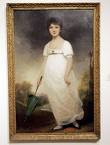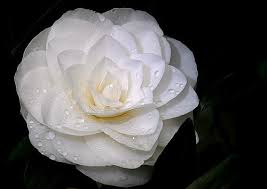
ALEJANDRO DUMAS Y LA VERDADERA HISTORIA DE LA DAMA DE LAS CAMELIAS
Dumas nos introduce en un ambiente del París del siglo XIX, aquél en el que bullía por sus calles un cuadro de tipo cortés y aristocrático, y nos esboza en unas maravillosas pinceladas las costumbres cotidianas de esa parte tan privilegiada como era el círculo noble y señorial de su época,en la que la gente adinerada se daba cita en los teatros públicos, y en los salones privados de sus lujosas mansiones, a los que acudían personajes ilustres del mundo artístico, político y literario.
La realidad nos la presenta el autor con rostros altivos, pavoneándose por las rues parisinas con expresiones arrogantes y vanidosas.
Alejandro Dumas que no pertenecía a esta refinada esfera social, se enamoró perdidamente de una cortesana, cuyo nombre verdadero era Alfonsiona Duplessis ,que recorría los mejores salones de París, y que se haría célebre por su exquisita compañía, su belleza, la vivacidad de sus ojos y una encantadora sonrisa.
Su hermosura, aparecía representada por una línea delgada en su figura y con una tez muy pálida que resaltaba del color oscuro de su cabello, estilo que estaba muy de moda por aquél entonces, pero que en Marie Duplessis, no representaba sino la larga y dolorosa enfermedad que padecía, la tuberculosis.
El idilio que ambos mantuvieron fue algo tormentoso, pues ella siguió rodeada de amantes, llevando una vida demasiado licenciosa para su grave enfermedad.
Así pues, en una fase de separación de la pareja, nuestra Dama falleció, y Alejandro Dumas, que sólo pudo acudir a su entierro, se encerró en su dolor, y en el período de un año salió a la luz su libro
 La novela de Alejandro Dumas tuvo tal éxito, que tuvo que editarla de nuevo adaptándola así al género del teatro, y posteriormente, el célebre compositor italiano Giuseppe Verdi, la inmortalizaría con el título de La Traviata, pasando a ser una de las mejores obras operísticas del gran músico, formando parte de su famosa trilogía romántica y popular junto con Rigoletto y Il Trovatore.
La novela de Alejandro Dumas tuvo tal éxito, que tuvo que editarla de nuevo adaptándola así al género del teatro, y posteriormente, el célebre compositor italiano Giuseppe Verdi, la inmortalizaría con el título de La Traviata, pasando a ser una de las mejores obras operísticas del gran músico, formando parte de su famosa trilogía romántica y popular junto con Rigoletto y Il Trovatore.
FIN











